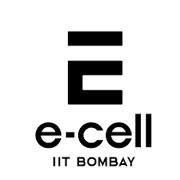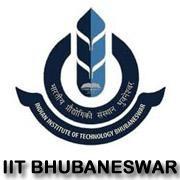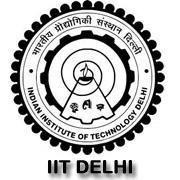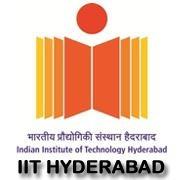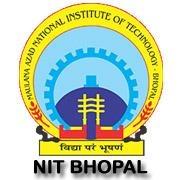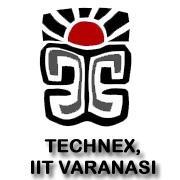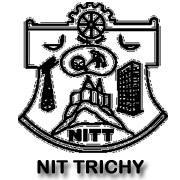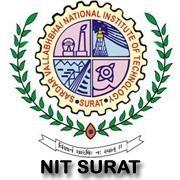Machine learning is a core sub-area of artificial intelligence as it enables computers to get into a mode of self-learning without being explicitly programmed. When exposed to new data, computer programs, are enabled to learn, grow, change, and develop by themselves.
Artificial intelligence (AI, also machine intelligence, MI) is intelligence displayed by machines, in contrast with the natural intelligence (NI) displayed by humans and other animals. In computer science AI research is defined as the study of "intelligent agents": any device that perceives its environment and takes actions that maximize its chance of success at some goal.
Artificial intelligence is the simulation of human intelligence processes by machines, especially computer systems. These processes include learning (the acquisition of information and rules for using the information), reasoning (using the rules to reach approximate or definite conclusions), and self-correction. Particular applications of AI include expert systems, speech recognition and machine vision.
Topics to be covered in Workshop
Artificial Intelligence
Problem Solving
- Solving Problems by Searching
- Beyond Classical Search
- Adversarial Search
- Constraint Satisfaction Problems
Knowledge and Reasoning
- Logical Agents
- First-Order Logic
- Inference in First-Order Logic
- Classical Planning
- Planning and Acting in the Real World
- Knowledge Representation
Uncertain Knowledge and Reasoning
- Quantifying Uncertainty
- Probabilistic Reasoning
- Probabilistic Reasoning over Time
- Making Simple Decisions
- Making Complex Decisions
Learning
- Learning from Examples
- Knowledge in Learning
- Learning Probabilistic Models
- Reinforcement Learning
Machine Learning
Introduction and ANN Structure
- Biological neurons and artificial neurons
- Model of an ANN
- Activation functions used in ANNs
- Typical classes of network architectures
Mathematical Foundations and Learning mechanisms
- Re-visiting vector and matrix algebra
- State-space concepts
- Concepts of optimization
- Error-correction learning
- Memory-based learning
- Hebbian learning
- Competitive learning
Single layer perceptrons
- Structure and learning of perceptrons
- Pattern classifier – introduction and Bayes & classifiers
- Perceptron as a pattern classifier
- Perceptron convergence
- Limitations of a perceptrons
Feedforward ANN
- Structures of Multi-layer feedforward networks
- Back propagation algorithm
- Back propagation – training and convergence
- Functional approximation with back propagation
- Practical and design issues of back propagation learning
Competitive Learning and Self organizing ANN
- General clustering procedures
- Self organizing feature maps
- Properties of feature maps
Fuzzy Neural Networks
- Neuro-fuzzy systems
- Background of fuzzy sets and logic
- Design of fuzzy stems
- Design of fuzzy ANNs
MACHINE LEARNING
- Bias – Variance tradeoff
- Regularisation
- Over-fitting
- Support Vector Machines
- Kernel Trick
- PCA and Kernel PCA
- K Means Clustering
- Self-Organization Maps (SOM)
- Kernel induced vector space
- Mercer Kernels and Kernel – induced similarity metrics
- Reinforcement Learning
DEEP LEARNING
This will be taught in relation to above topics covered.
- Logistic and Softmax Regression
- Sparse Autoencoders
- Vectorization, PCA and Whitening
- Self-Taught Learning
- Deep Networks
- Linear Decoders
- Convolution and Pooling
- Sparse Coding
- Independent Component Analysis
- Canonical Correlation Analysis
- Demos and Applications
Applications & Projects using Python Libraries
A few examples of Neural Network applications, their advantages and problems will be discussed
- OR Logic, AND Logic & XOR Logic Example using ANN
- Housing Prizes Prediction
- Single Line Hypothesis Training
- Share Market Prediction
- Marks Prediction
- Cancer Detection
- Character Recognition using SVM
- Automatic Product Classification & Clustering based on Retails Context
- Predictive Analysis based on Business Housing values
- Using Datasets available on UCI, github and other opensource platforms
Eligibility For Applying : Any college can opt for this program. Students/Faculties from B.E./B.Tech/M.Tech/M.E./MCA/BCA. with the above mentioned academic requirements are preferable. We are looking for Engineering College of National repute to host our Summer Training Program at their college campus. If You wish to associate with us and want to make your college a center, Please read the request guidelines and process it accordingly:
- Engineering College/Institution should have a seminar room/lecture hall of seating capacity of (Minimum capacity of 30 seats.)
- A good Quality LCD Projector enough to maintain comfort ability.
- Public Addressing System (1 Cordless MICs.)
- Power backup and 220V AC power Points.
- Hospitality for our visiting delegation during summer training.
- Wifi Connectivity for participants & trainer.
- A minimum of 30 students will be required to participate in Summer Training Program.
Certification:
- All courses under Summer Training Program (STP) are certified by Anwesha, IIT Patna & Innovians Technologies.
- All trainee will receive an Industrial Training Certificate from Anwesha, IIT Patna & Innovians Technologies.
- All Participants will get Internship Letter cum Recommendation on Company Letterhead of Innovians Technologies.
Duration : 2 Weeks /4 Weeks * (6 Hours Per Day)
Incase of 4 Weeks Training (2 Week Classroom Training + 2 Week Project Work), participants will get 2 Week Classroom Training same like 2 Week Training Program and they will get 2 Week Time to complete one project/research work on their course topic which they can do it from home. Project Work is for those who want to get 4 Week Training Certificate as per their college/university Criteria of Training. Otherwise college can request for 2 Week Training Program. Classroom Training is same for 2 Weeks & 4 Weeks Duration Summer Training.




